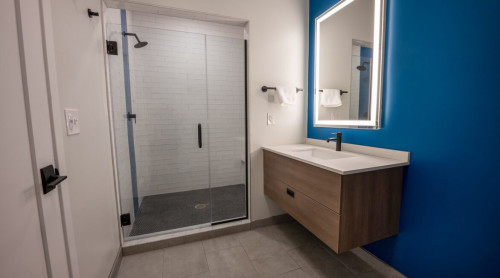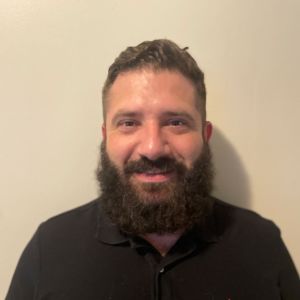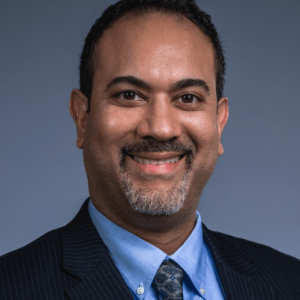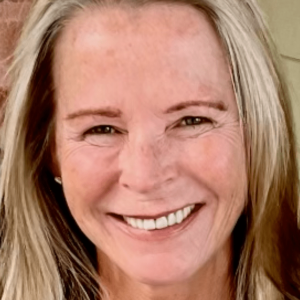








Paramount Wellness Retreat
Verified Center
This provider's information has been quality-checked by Recovery.com's Research Team for accuracy and completeness, including center verification through appropriate third-party organizations.
Treatment Focus
This center treats substance use disorders and co-occurring mental health conditions. Your treatment plan addresses each condition at once with personalized, compassionate care for comprehensive healing.
Primary Level of Care
Offering intensive care with 24/7 monitoring, residential treatment is typically 30 days and can cover multiple levels of care. Length can range from 14 to 90 days typically.
Treatment Focus
This center treats substance use disorders and co-occurring mental health conditions. Your treatment plan addresses each condition at once with personalized, compassionate care for comprehensive healing.
Primary Level of Care
Offering intensive care with 24/7 monitoring, residential treatment is typically 30 days and can cover multiple levels of care. Length can range from 14 to 90 days typically.
Provider's Policy
We collaborate with PPO insurance policies, ensuring accessible and comprehensive coverage for our clients. We do not accept Medicaid or Medicare.
Paramount Wellness Retreat
Paramount Wellness Retreat
About Paramount Wellness Retreat
Located next to Haddam Meadows State Park, Paramount Wellness Retreat offers a residential setting to treat addiction and dual diagnoses with a holistic approach. They treat co-occurring depression, anxiety, bipolar disorder, obsessive compulsive disorder, PTSD, attention disorders, and disordered eating. Clients can safely detox from substances with their on-site detox program. Paramount Wellness Retreat’s clinicians conduct a comprehensive evaluation to understand substance use history, co-occurring disorders, existing medical conditions, and withdrawal risk.
Clinically-Based Detox and Residential Care
Clients with alcohol, heroin, cocaine, opioid, meth, benzodiazepine, and prescription drug addiction can find refuge and comfortably detox at Paramount Wellness Retreat. They offer medication-assisted treatment, as needed. Medical staff provides 24/7 support and works with clients to customize treatment to their recovery goals. Paramount Wellness Retreat offers a seamless transition to their residential program where clients engage in evidence-based, trauma-informed therapies in individual, group, and family settings. These therapies include cognitive behavioral therapy (CBT), dialectical behavioral therapy (DBT), and acceptance and commitment therapy (ACT). Clients participate in psychoeducation and anger management classes. Paramount Wellness Retreat is a 12-Step-informed program.
Holistic and Experiential Recovery
Paramount Wellness Retreat creates a holistic healing experience for its clients through various methods, such as yoga, Reiki, sound healing, meditation, massage therapy, and ayurveda. They also provide biofeedback to strengthen clients’ mind-body connection through learned coping skills and stress-relieving techniques. Each client’s care team collaborates across departments to ensure every treatment modality complements the others. Paramount Wellness Retreat’s experiential therapies include art therapy, music therapy, equine therapy, psychodrama, and adventure therapy with hiking and ropes courses.
Aftercare & Comfortable Accommodations
Tucked away on nearly 4 acres on the Connecticut river, Paramount Wellness Retreat is a luxury, retreat-style facility offering private bathrooms, fitness spaces, chef-prepared meals, and a tranquil environment. Their alumni services offer long-term support with lifetime access to certified recovery coaches, recovery experts, and clinical staff. Paramount Wellness Retreat’s alumni program is fully integrated into long-term treatment plans and include:
- Weekly meetings
- Group dinners
- Volunteer opportunities
- Mentorship opportunities
- Vocational assistance
- Recovery support services
- 12-Step programs
- SMART recovery

Highlights from the Center
Highlights
These highlights are provided by and paid for by the center.
Holistic Approach
Medically Assisted Detox
Trauma-Informed Care
Private Rooms Available
Center Overview
Treatment Focus
This center treats substance use disorders and co-occurring mental health conditions. Your treatment plan addresses each condition at once with personalized, compassionate care for comprehensive healing.
Joint Commission Accredited
The Joint Commission accreditation is a voluntary, objective process that evaluates and accredits healthcare organizations (like treatment centers) based on performance standards designed to improve quality and safety for patients. To be accredited means the treatment center has been found to meet the Commission's standards for quality and safety in patient care.

Paramount Wellness Retreat
Insurance Accepted
Cash Pay Rates
Estimated Cash Pay Rate
Center pricing can vary based on program and length of stay. Contact the center for more information. Recovery.com strives for price transparency so you can make an informed decision.




Recovery.com Verified Listing
Recovery.com verified that the name, location, contact information and license to operate for this treatment provider are valid and up-to-date.

Joint Commission Accredited

Licensed by Connecticut
Recovery.com is an independent, third-party mental health resource. Verification does not imply endorsement and does not guarantee the quality of treatment services.
Meet Your Care Team

Ron Donatucci
Co-Founder

Kyle Bartler
Co-Founder

Joshua Zeises
CEO

Christopher Bartler
Co-Founder

Dr. Po Chang Hsu
Medical Doctor
MD, MS

Cassandra Ruela
Executive Director
LPC, ICAADC

Ginny Payton
Lead Recovery Coach

Briana Melendez
RN Nursing Supervisor

Shana Smith
Clinical Case Manager

James Fulti
Director of Admissions

Dr. Ravi Chandiramani
Co-Founder
NMD

Shana Smith
Clinical Case Manager

Daniel Cervonka
Physician Associate
PA-C, DHSc

Anne Thorpe
Director Of Nursing
RN

Jaime Pietrosimoone
Family Wellness Director
Your Care Options
Specializations
Alcohol
Using alcohol as a coping mechanism, or drinking excessively throughout the week, signals an alcohol use disorder.
Detox
Detox fully and safely removes toxic substances from the body, allowing the next steps in treatment to begin with a clean slate.
Benzodiazepines
Benzodiazepines are prescribed to treat anxiety and sleep issues. They are highly habit forming, and their abuse can cause mood changes and poor judgement.
Co-Occurring Disorders
A person with multiple mental health diagnoses, such as addiction and depression, has co-occurring disorders also called dual diagnosis.
Holistic
A non-medicinal, wellness-focused approach that aims to align the mind, body, and spirit for deep and lasting healing.
Methamphetamine
Methamphetamine, or meth, increases energy, agitation, and paranoia. Long-term use can result in severe physical and mental health issues.
Wellness
Wellness philosophies focus on the physical, mental, and spiritual wellness of each patient, helping them restore purpose with natural remedies.
Who We Treat
Executives
Executive treatment programs typically directly support the needs of people who manage businesses and may provide flexible schedules and office space to allow work during treatment.
Men and Women
Men and women attend treatment for addiction in a co-ed setting, going to therapy groups together to share experiences, struggles, and successes.
Mild Disabilities
Adults with mild physical or intellectual disabilities receive treatment catered to their specific needs in a safe and clinically supportive environment.
Professionals
Busy, high-ranking professionals get the personalized treatment they need with greater accommodations for work, privacy, and outside communication.
Treatment Services
Detox
Detox fully and safely removes toxic substances from the body, allowing the next steps in treatment to begin with a clean slate.
Residential
In a residential rehab program, patients live onsite, with access to daily treatment and 24-hour care. An average stay is 30-90 days.
Approaches
Evidence-Based
A combination of scientifically rooted therapies and treatments make up evidence-based care, defined by their measured and proven results.
Holistic
A non-medicinal, wellness-focused approach that aims to align the mind, body, and spirit for deep and lasting healing.
Personalized Treatment
The specific needs, histories, and conditions of individual patients receive personalized, highly relevant care throughout their recovery journey.
Twelve Step
Incorporating spirituality, community, and responsibility, 12-Step philosophies prioritize the guidance of a Higher Power and a continuation of 12-Step practices.
Wellness
Wellness philosophies focus on the physical, mental, and spiritual wellness of each patient, helping them restore purpose with natural remedies.
Therapies
1-on-1 Counseling
Patient and therapist meet 1-on-1 to work through difficult emotions and behavioral challenges in a personal, private setting.
Meditation & Mindfulness
A practiced state of mind that brings patients to the present. It allows them to become fully aware of themselves, their feelings, and the present moment.
Animal Therapy
Animals can inspire trust and self-worth. In this experiential therapy, guided interactions are used to improve social skills and emotion regulation.
Ayurveda
One of the oldest medicine systems, Ayurveda is based on the idea that wellness lies in the mind-body-spirit balance and can be achieved through natural interventions.
Eye Movement Therapy (EMDR)
Lateral, guided eye movements help reduce the emotional reactions of retelling and reprocessing trauma, allowing intense feelings to dissipate.
Family Therapy
Family therapy addresses group dynamics within a family system, with a focus on improving communication and interrupting unhealthy relationship patterns.
Massage Therapy
Massage therapy relieves physical and emotional tension, reduces pain, promotes relaxation, and improves emotion regulation.
Conditions We Treat
Grief and Loss
Grief is a natural reaction to loss, but severe grief can interfere with your ability to function. You can get treatment for this condition.
Personality Disorders
Personality disorders destabilize the way a person thinks, feels, and behaves. If untreated, they can undermine relationships and lead to severe distress.
ADHD, ADD
ADHD is a common mental health condition caused by dopamine imbalance. Common symptoms include inattention, hyperactivitiy, and impulsivity.
Anger
Although anger itself isn't a disorder, it can get out of hand. If this feeling interferes with your relationships and daily functioning, treatment can help.
Anxiety
Anxiety is a common mental health condition that can include excessive worry, panic attacks, physical tension, and increased blood pressure.
Bipolar
This mental health condition is characterized by extreme mood swings between depression, mania, and remission.
Codependency
Codependency is a pattern of emotional dependence and controlling behavior. It's most common among people with addicted loved ones.
Depression
Symptoms of depression may include fatigue, a sense of numbness, and loss of interest in activities. This condition can range from mild to severe.
Obsessive Compulsive Disorder (OCD)
OCD is characterized by intrusive and distressing thoughts that drive repetitive behaviors. This pattern disrupts daily life and relationships.
Substances We Treat
Alcohol
Using alcohol as a coping mechanism, or drinking excessively throughout the week, signals an alcohol use disorder.
Benzodiazepines
Benzodiazepines are prescribed to treat anxiety and sleep issues. They are highly habit forming, and their abuse can cause mood changes and poor judgement.
Chronic Relapse
Consistent relapse occurs repeatedly, after partial recovery from addiction. This condition requires long-term treatment.
Co-Occurring Disorders
A person with multiple mental health diagnoses, such as addiction and depression, has co-occurring disorders also called dual diagnosis.
Cocaine
Cocaine is a stimulant with euphoric effects. Agitation, muscle ticks, psychosis, and heart issues are common symptoms of cocaine abuse.
Drug Addiction
Drug addiction is the excessive and repetitive use of substances, despite harmful consequences to a person's life, health, and relationships.
Ecstasy
Ecstasy is a stimulant that causes intense euphoria and heightened awareness. Abuse of this drug can trigger depression, insomnia, and memory problems.
Heroin
Heroin is a highly addictive and illegal opioid. It can cause insomnia, collapsed veins, heart issues, and additional mental health issues.
Psychedelics
Hallucinogenic drugs—like LSD—cause euphoria and increased sensory experiences. When abused, they can lead to depression and psychosis.
Languages
Aftercare
Care Designed for Your Needs
Personal Amenities
Amenities
Special Considerations
Flexible technology policies
Centers with flexible technology policies allow professionals to stay in touch with work and give patients a greater sense of connection and normalcy.
Activities
Yoga
Yoga is both a physical and spiritual practice. It includes a flow of movement, breathing techniques, and meditation.
Off-Site Activities
Learn More About the Center
Treatment Guide & FAQs
Explore the answers to commonly asked questions about Paramount Wellness Retreat’s treatment.
Trauma-Informed Group Therapy
Read more about how Paramount Wellness Retreat treats dual diagnoses with specialized trauma-informed care.
Aftercare Planning
Discover what’s included in Paramount Wellness Retreat’s aftercare planning.
Family Therapy
Learn more about how Paramount Wellness Retreat heals the whole family.
What people are saying
Treatment
5.0
Accommodations
5.0
Food & Nutrition
5.0
Value
5.0
Pros
- Beautiful Location (2)
- Supportive Aftercare (2)
Robyn D
Treatment in 2025 • (45 days) • Reviewed 02/26/25
Former Client
•Westchester County, NY
Leann
Treatment in 2024 • (30 days) • Reviewed 09/10/24
Loved One of a Former Client





